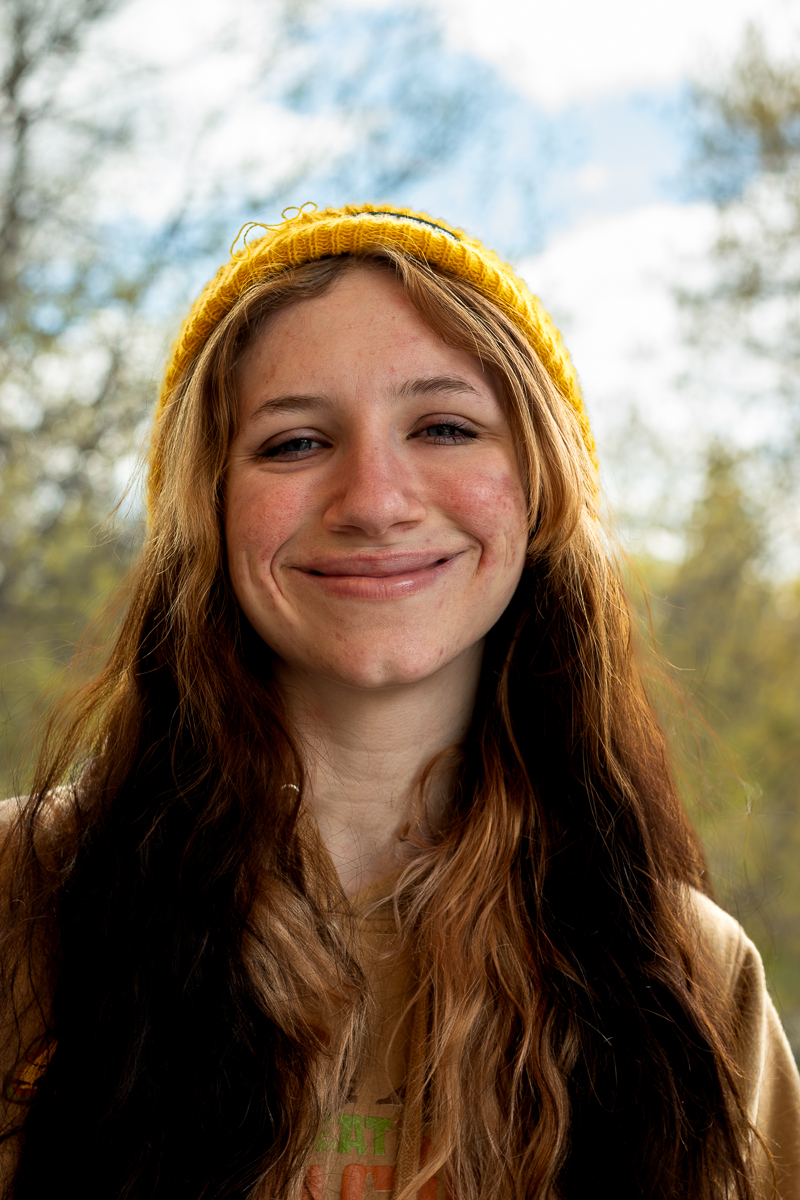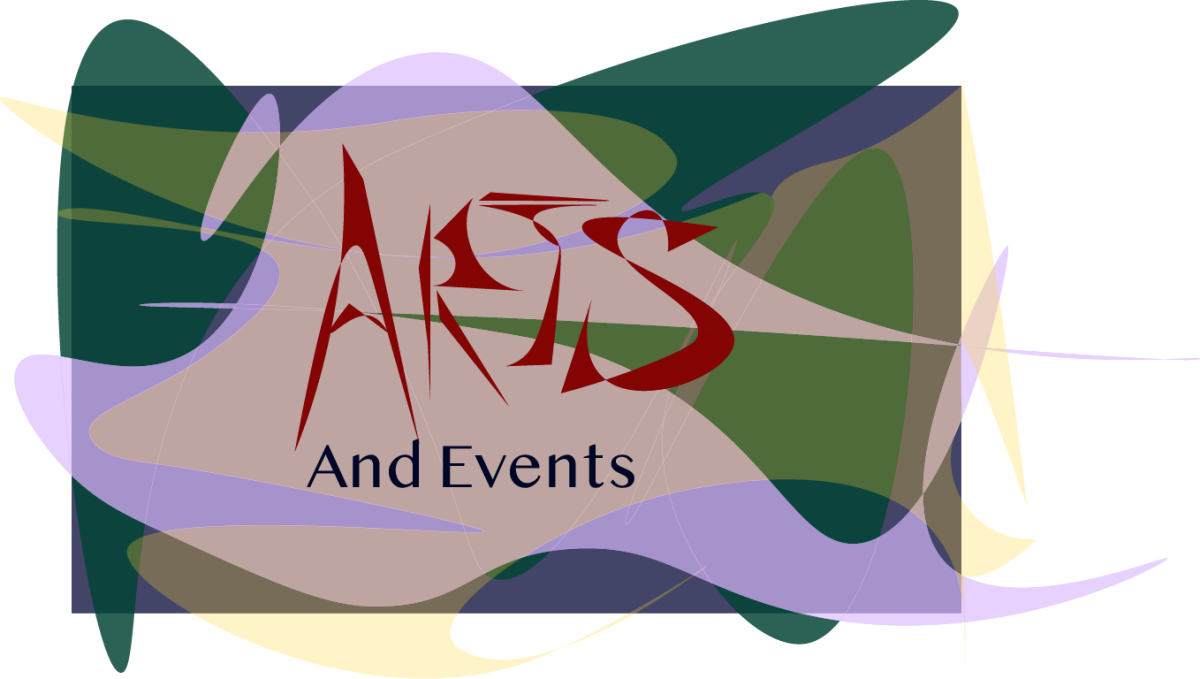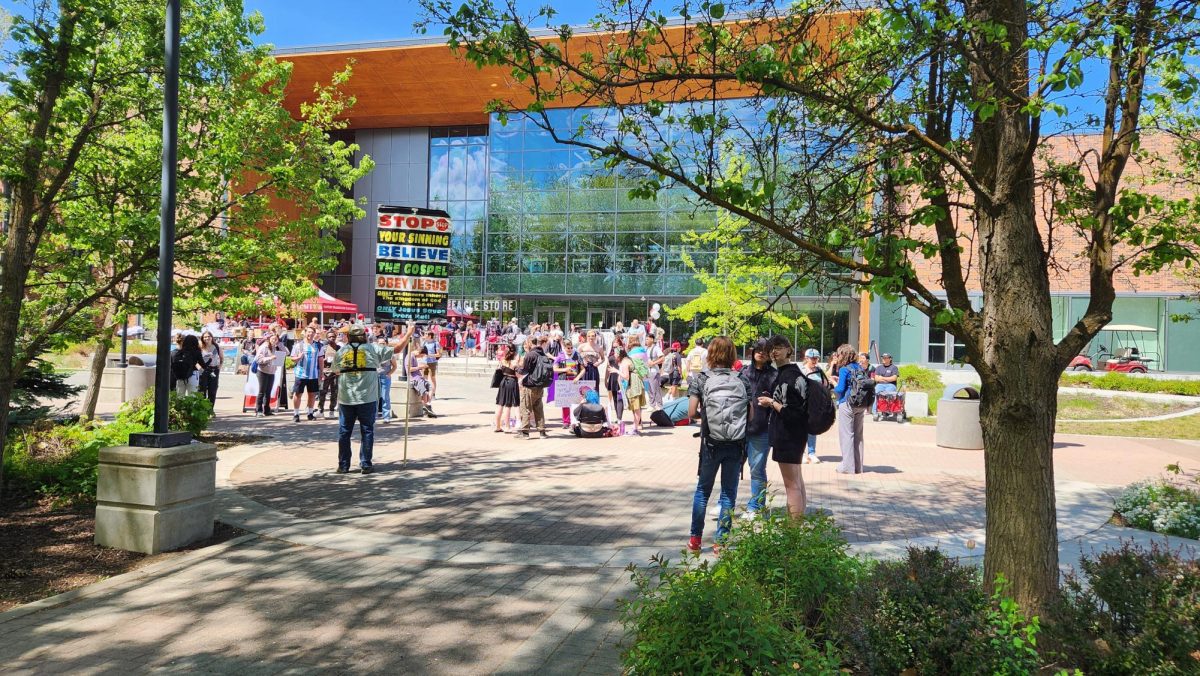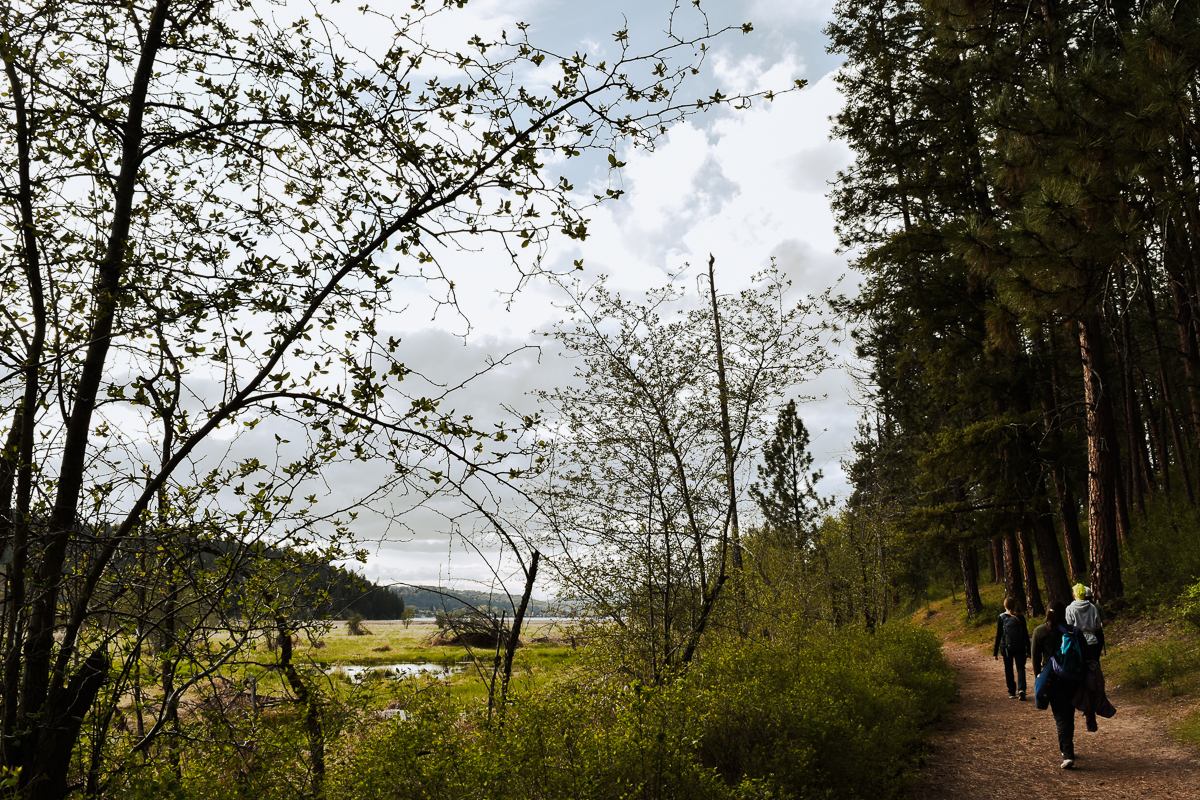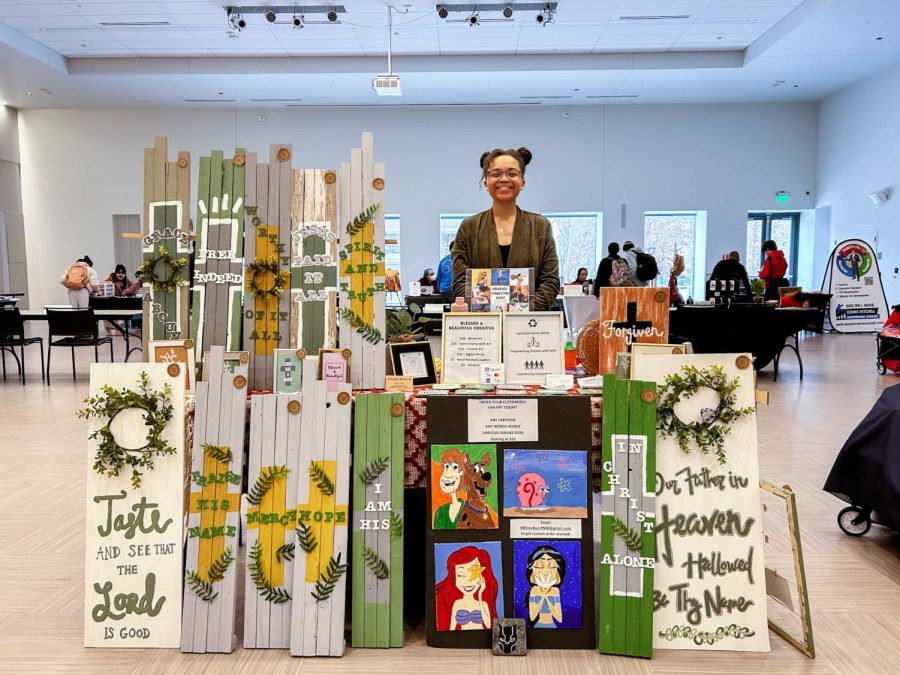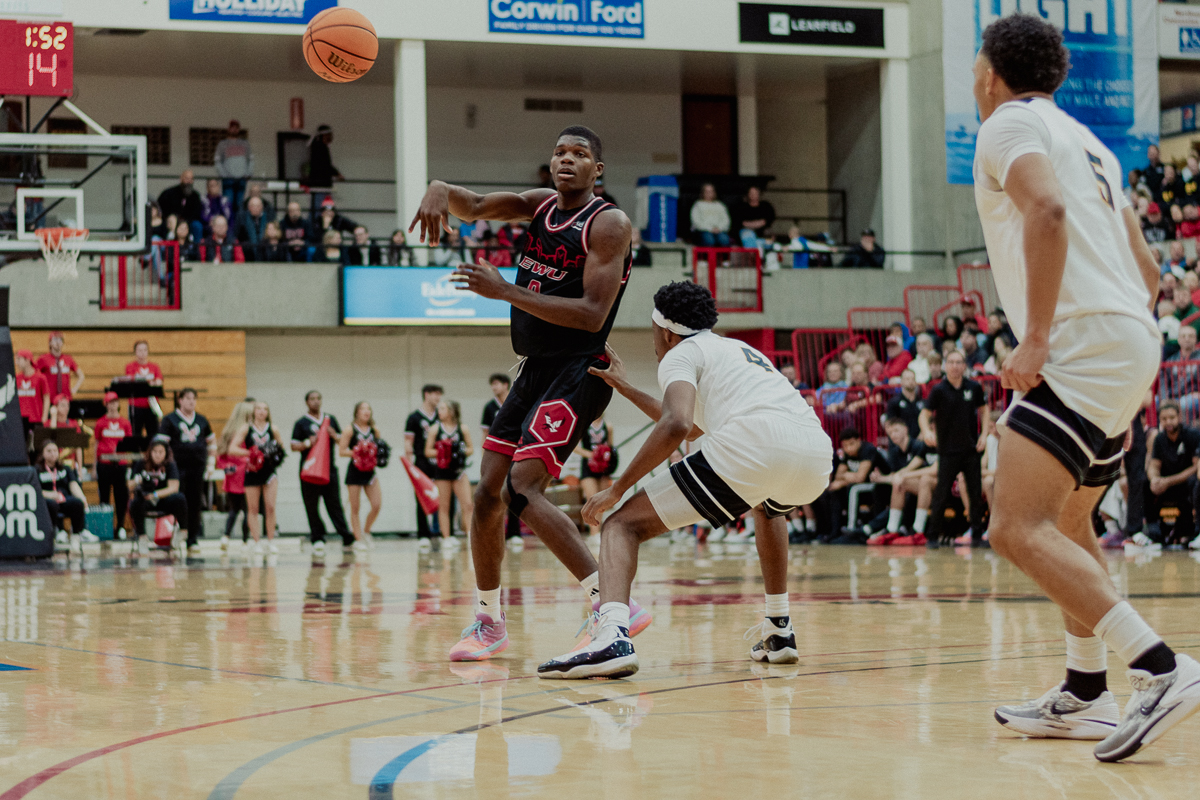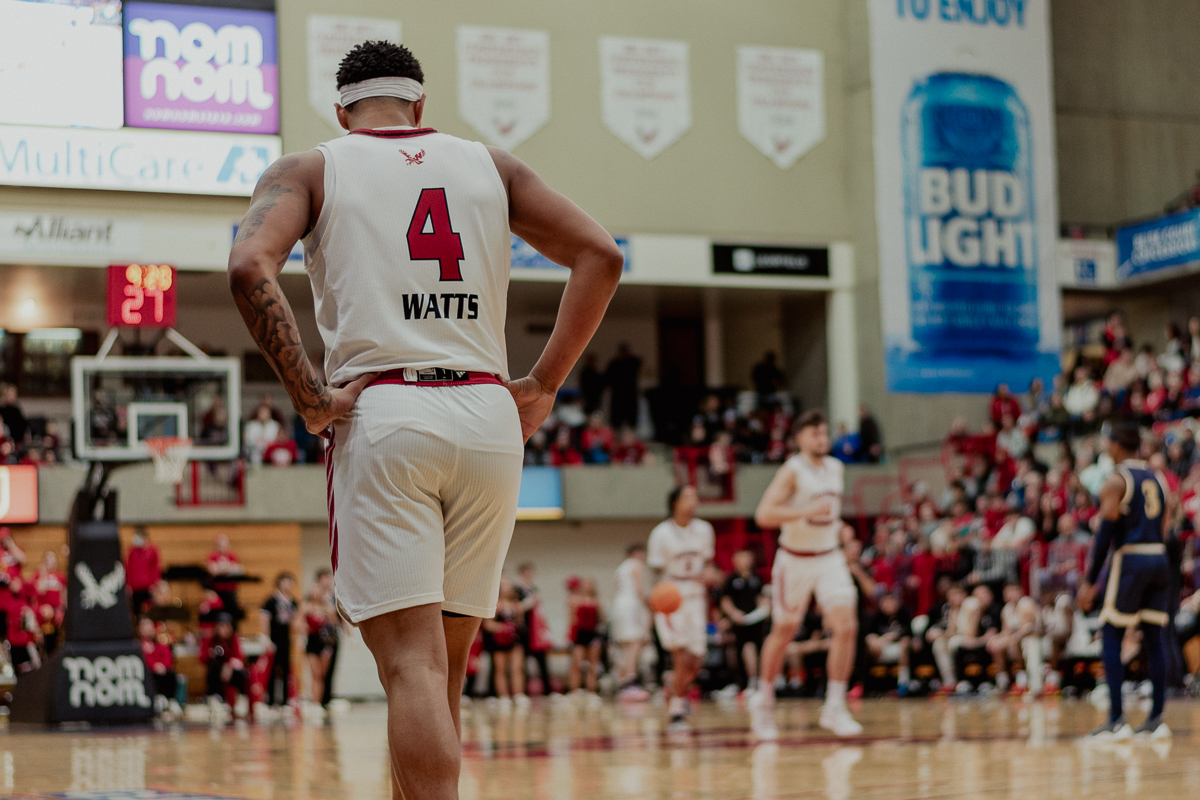With four international players this season, and another arriving from France next school year, the Eastern Washington University women’s tennis team contains the most international student-athletes on campus.
Head coach Dustin Hinson believes that a large reason his team is so diverse is due to international tennis players being highly motivated to come to the United States.
“The international pool is really huge, there’s a lot of players and they’re all itching for the opportunity to come to the U.S. and play D1 tennis,” he said.
This statement was echoed by international players from the team, such as sophomore Sara Vasic.
“I knew I really wanted to come to the [United States] because if I stayed home, I would be done with tennis,” said Vasic. “It was more for school and academics, but tennis was a way to come. Then you combine something that you love to do with school.”
Redshirt sophomore Kelly Arends, from South Africa, shared a similar sentiment, focusing on the benefits of building relationships.
“It’s a great opportunity to get a great education and play the sport you love at the same time, and make a lot of friends and experiences.”
Eastern Washington University also helps incentivize international students to attend the school through tuition discounts if they live on campus.
“It’s not just for student-athletes,” Hinson said. “All international students that live on campus get that tuition discount, so that’s nice too.”
International tennis players are discovered by and recruited to U.S. universities in a variety of ways. For instance, Hinson saw recruiting videos on YouTube of Vasic and redshirt freshman Anait Arutiunian, who is from Russia.
“That was interesting because we were sending out emails to all the schools and coaches, and that was a list of I think 200 schools, and Eastern was the only school that was not on the list because we couldn’t find his email,” said Vasic.
Other players, such as sophomore Leandra Nizetic, are put in contact with coaches by agents who represent the athletes.
“Agents have relationships with the coaches,” Hinson said. “If they get somebody that they’re representing who they think would be a good fit for my program, they’ll just reach out to me.”
One key difference in the recruiting process of international athletes and domestic student-athletes is visits. While many students, not just athletes, will visit schools they are interested in before attending, this option is often not feasible for international students.
“I’ve had a couple internationals in the past come on visits, but it’s pretty rare…Yesterday I walked around taking pictures all over campus to send to a recruit because she’s not going to come visit so she really wants to know what it’s like,” said Hinson.
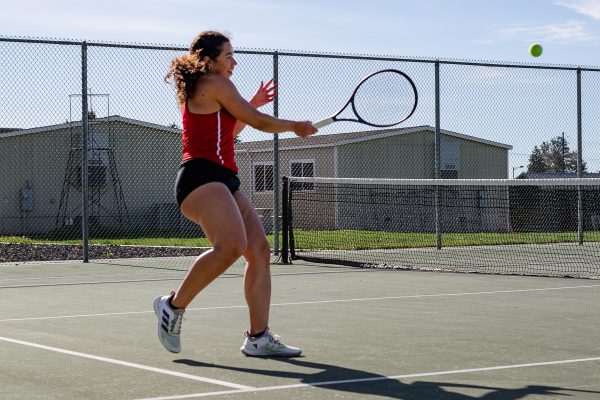
Another issue that can arise due to the distance is homesickness.
“I’m a big family person,” Arutiunian said. “So it’s still, for me, really hard with the distance, but things like the team help me a lot.”
To help student-athletes acclimate to their new homes, Hinson strives to build a welcoming, close-knit team culture that feels like family.
“It’s their home away from home, where they feel supported,” he said.
The members of the team also engage in team bonding activities to bring them closer together and forge friendships.
“Our team did a good job [bonding] because we did a lot outside the tennis court,” said Nizetic. “We met together and had a movie night or a dinner party, and it was very nice.”
This family culture has not only aided Eastern Washington in being successful at recruiting international tennis student-athletes but also in retaining them.
“The transfer portal is a huge deal, and it’s becoming bigger and bigger every year. I don’t have athletes that want to leave my program,” Hinson said. “I’m really proud of that.”
All four international student-athletes mentioned Hinson’s efforts toward helping them have been extremely beneficial.“I know that if I have any sorts of questions or problems, I can call whenever I want and he’ll answer. I’m very thankful for that,” Arutiunian said.
The difference in the culture between the student-athletes’ hometowns and the United States was surprising to them but has also allowed them to learn a lot.
“In Germany, the people are not mean, but they are more direct,” said Nizetic. “Here, the people are so nice and friendly and giving compliments. It’s a huge difference.”
Vasic, who is from Serbia, has also experienced Americans being much more social, especially with people they don’t know.
“At the stores, at the checkout, the cashier is going to ask you, ‘How was your day?’
And then I was like, ‘Oh, are you asking me?’
And they’re like, ‘Yeah! How are you?’ And that’s just never going to happen back home.”
Hinson said the mixture of cultures on a team with many international players has many benefits. Hinson played tennis at the University of Idaho, and his team contained multiple international players.
“You get to make friends from all over the world,” he said. “Most of the time, they end up heading back to their home countries, so having that friendship with people around the world is really cool.”
He has also seen the impact that international players have had on the American players on the team.
“I’ve had a lot of my Americans who get to travel in the summer or after they graduate, and they get to stay with some of my international athletes, and that’s really cool. I think having Eagles around the world after they graduate is really cool.”
It is a hard decision to leave their home country for multiple months a year, but Hinson and the women’s tennis team have been successful at embracing international players and treating them as family.
“They made me feel very welcome, and always had a positive energy,” Arends said, “so I felt very comfortable fitting into this environment.”




![Simmons said the biggest reasons for her success this year were “God, hard work, and trusting [her] coach and what she has planned.”](https://theeasterner.org/wp-content/uploads/2024/05/image1-1-1200x800.jpg)

